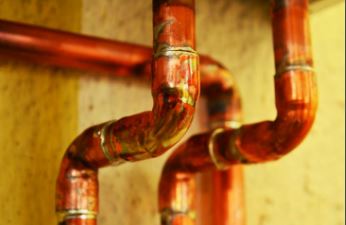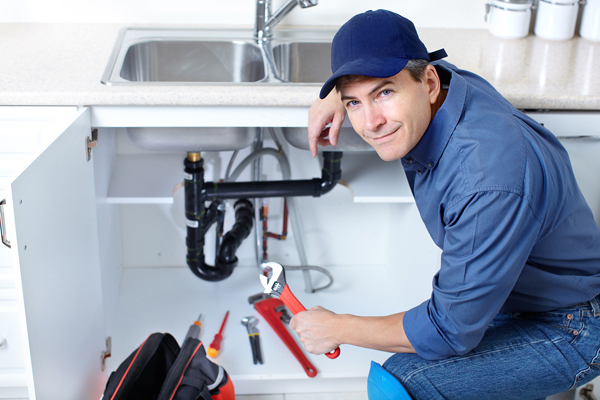water heater not hot
water heater repair costs
Energy-saving. The Department of Energy (DOE) is seeking comment on a draft rule that would define tabletop water heaters separately from other classes of consumer water heaters. If the rule were adopted, these devices would be defined in 10 CFR 430.2. A draft rule would define "tabletop water heater" as a device that is a single unit, is energy-efficient, and uses solar energy or wind power for heat and electricity. A survey of consumer water heaters conducted by DOE has identified some technologies that increase their energy efficiency. The DOE uses publicly available product literature to determine which technologies are most common in commercially-available consumer water heaters and those that are likely to meet amended energy conservation standards. It also determines what technologies are most common in max-tech and intermediate energy efficiency products. This survey is intended to guide consumers on the energy-efficiency features of point-of-use water heaters.

water heater repair cost
The two primary types of solar water heaters are passive and active. Passive systems require no solar collectors, which means less piping and a lower price. Passive systems, on the other hand, require some maintenance and typically cost between $5 and $8,000. A 100-gallon system with a single collector is typically $5,000 to install. This price includes the solar water heater, tank, labor, and solar contractor's services. A dual heat exchanger solar water heater will run you about $8000. Depending on the size of the system and the number of solar panels, it will also cost between $2000 and $40,000 to install. However, the initial investment is less than $100 per month.
electric water heater troubleshooting
Cost. Point-of-use water heaters are designed to provide hot water when needed. They are recommended by the U.S. Department of Energy because they can save up to 50 percent on energy consumption. In addition to being convenient, they can save money for the consumer and help the environment. The following are some of the benefits of point-of-use water heaters. These appliances are not always the cheapest option, but they can add value to a home by reducing energy bills.

water heater repair parts
For a more detailed analysis of energy efficiency, DOE will examine UEF in addition to EF and IECC. UEF refers to the volume of a water heater's tank. As a result, a higher UEF means higher energy efficiency, which is ideal for reducing utility costs. Further, these appliances use less energy than a storage water heater, a factor that DOE intends to take into consideration when determining how much they cost to operate.
water heater specialists
Installing a solar hot water heater in your home can reduce your monthly water heating bills by 50%. It may also be possible to supplement your existing system. A DIY solar water heater will save you a lot of money on energy costs and pay for itself in a few years. If you're unsure about the cost of a solar water heater, check out the energy star rating for the water heater. In addition to this, you may want to consider adding additional energy-efficient appliances in your home to further improve your energy efficiency.

electric water heater repair near me
However, gas water heating systems are not always the better choice. While gas water heaters can be installed faster, installing an electric one can be more complicated. However, the gas version is more durable than electric, and you can easily replace it if the time comes. In addition to saving money, you will also be helping the environment. This is great news for those who are concerned about the environment.
rheem water heater installers
Gas and electricity are both common sources of energy in most homes. When comparing gas and electricity, be sure to consider your location. While you might be able to get natural gas from your local area, you may not have a chimney in your home. If this is the case, you may want to consider propane-powered models. This will be more cost-effective than switching over to a new power source.

How many gallons does a hot water heater store?
Popular domestic receptacle hot water heater can range in dimension as well as capability. Tank hot water heater range from 20- to 80-gallon capabilities. Ability is all about making sure your hot water heater can fulfill the requirements of your residence. Storage space ability is even more of a worry about a container hot water heater.
How long Do Water Heaters Last?
Based on the developer's suggested life span, the lifetime of a water heater is about eight to 12 years. That varies with the location as well as design of the system, quality of setup, maintenance schedule and also water quality. If your hot water heater is more than ten years old, leakages around the base of the storage tank or if it functions erratically, it's probably time for a substitute. You may additionally select to update to a much more efficient design to reduce your power expenditures.
What is uppermost frequent issue with water heaters?
Water leaks are possibly one of the most common kind of hot water heater issue you'll face. Any hot water heater will start to leak eventually, as naturally water will ultimately rust your storage tank as well as produce tiny fractures or fractures. Nonetheless, this isn't always an indicator that your container is what's leaking.